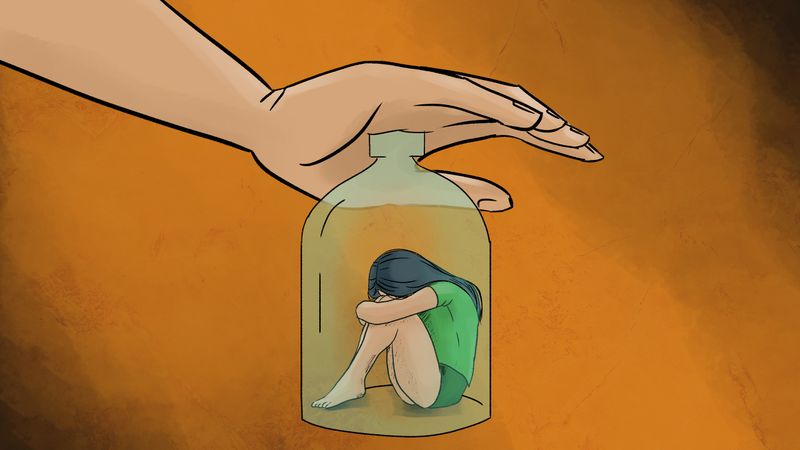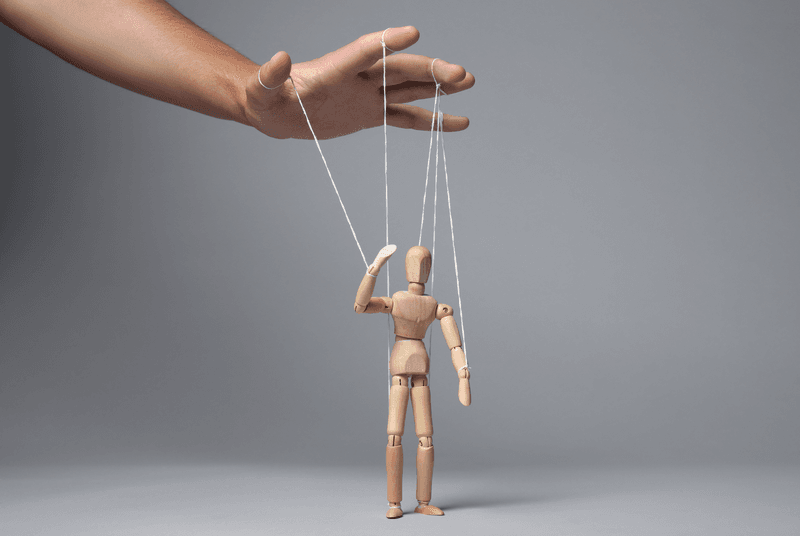18 Relationship Behaviors That Are Actually Power Plays in Disguise
Let’s not sugarcoat it—love can be confusing as hell. Sometimes what looks like passion is control. What sounds like “caring” is actually manipulation. And what feels like closeness? It’s just someone trying to tighten the leash.
Here’s the deal: not all relationship behaviors are as innocent as they look. Some are subtle power plays dressed up in sweet words, fake concern, or “harmless” habits. And unless you’ve got your eyes wide open, it’s easy to mistake control for connection.
So let’s peel back the cozy illusion. Here are 18 sneaky behaviors that seem romantic or normal—but are actually about control. And no, you’re not “too sensitive” for noticing.
1. “I Was Just Kidding”—But Somehow, You’re Always the Punchline

Ever noticed how you’re always the punchline in their jokes? At first, you might laugh it off, thinking it’s harmless teasing. But when the laughter fades, you’re left nursing that sting, questioning if you’re just too sensitive.
It’s not about a sense of humor; this is about keeping you small while they get to look clever. If you try to call them out, you’re hit with, “Relax, it was just a joke!” Suddenly, you’re both embarrassed and silenced.
This kind of humor is all about dominance with a smile. It makes you doubt your right to feel hurt, wrapping control in sarcasm. You deserve someone whose laughter feels safe, not sharp.
2. Keeping Score Like It’s the Emotional Olympics

Ever felt like every little thing you do gets logged away for future reference? Maybe he did the dishes last Tuesday, and now you’re hearing about it every time you ask for help.
Suddenly, love starts to feel like a competition, not a safe space. Instead of teamwork, you get passive-aggressive reminders of all their efforts—a running tab that only gets paid when you ‘even the score.’
This isn’t partnership—it’s emotional bookkeeping designed to make you feel like you always owe them. Healthy love isn’t about keeping receipts. It’s about showing up for each other without expecting to cash in later.
3. Deciding When You’re Allowed to Be Upset

Have you ever been told you’re ‘too emotional’ whenever you express your feelings? It’s like your emotions need a permission slip signed by them before they’re valid.
You end up second-guessing your reactions, wondering if you’re actually being unreasonable or just made to feel that way. Little by little, your gut instincts get replaced by their rules.
This isn’t about ‘helping you calm down’; it’s about controlling the narrative of what’s acceptable. Nobody else gets to be the gatekeeper of your feelings. Your emotions are real, and they deserve respect.
4. “Let Me Handle It” – But You’re Never Asked

Sometimes people step in to help, and that’s sweet. But if you notice your voice constantly being steamrolled ‘for your own good,’ that’s not support—it’s strategy.
It starts small: picking your meal at a restaurant, speaking for you at a gathering, or managing your schedule without asking. After a while, you start feeling invisible, like your opinions don’t even matter.
This isn’t about being helpful; it’s about running the show. When your choices and preferences get bulldozed, it’s time to ask: who’s really benefitting? You deserve to have a say in your own life.
5. Withholding Affection Like It’s a Cookie You Didn’t Earn

Ever felt like love suddenly disappears when you push back or speak up? Affection, compliments, or even simple attention vanish as soon as you step out of line.
You’re not a puppy; love isn’t a treat to be earned for ‘good behavior.’ This tactic leaves you hungry for approval, always wondering if you need to apologize just to get basic kindness back.
Withholding affection isn’t about teaching lessons—it’s about control. Healthy relationships don’t run on reward systems. You deserve warmth and love, not cold shoulders handed out like punishments.
6. Making You Doubt Your Memories (A.K.A. Gaslighting Lite)

Ever walked away from an argument wondering if you’re losing your mind? If your partner regularly denies things they said or did, making you question your memory, you’re not imagining things.
It’s classic gaslighting, just with less drama—think of it as Gaslighting Lite. You start to second-guess everything, feeling like maybe you’re just too forgetful.
But don’t be fooled. This isn’t about miscommunication—it’s about emotional rerouting. If you leave conversations feeling unsteady on your feet, it’s time to trust yourself again. Your reality is valid, and you deserve to feel secure.
7. Giving the Silent Treatment Like It’s an Olympic Sport

Nothing cuts deeper than being shut out on purpose. The silent treatment isn’t about needing space; it’s about sending you a message—obey, or get iced out.
You replay the argument a hundred times, desperate to fix it so things go back to ‘normal.’ But normal means you tiptoe around, afraid to do anything that might cause another freeze-out.
This isn’t communication—it’s emotional hostage-taking. You deserve someone who talks things out, not someone who disappears until you beg for peace. Real love faces problems, not people.
8. Always Being the Victim—No Matter What They Did

Have you ever noticed how, no matter what went wrong, they always end up as the wounded party? They could yell, break promises, or blame you—and yet somehow, you’re left apologizing to comfort them.
It’s emotional judo: they flip the script so you’re always on the defensive. No matter how the fight started, it ends with you feeling guilty and them collecting sympathy points.
This isn’t vulnerability; it’s manipulation. A true partner owns their actions and cares about your feelings too. Don’t let someone else’s victim narrative erase your reality.
9. Monitoring Who You Talk To “Because I Trust You—It’s Them I Don’t”

“I trust you, it’s just your friends I don’t.” Sounds protective, right? But it’s really just the beginning of surveillance disguised as concern.
Maybe they want access to your texts, scroll through your social media, or question every new friend. What starts as ‘cute’ jealousy soon becomes a GPS tracker on your life.
Trust doesn’t come with a monitoring app. You should be able to have your own circle, your own moments, without feeling watched. Real love sets you free; it doesn’t put you on lockdown.
10. Telling You How to Dress, Speak, or “Present Yourself”

Ever had every outfit come with a side of commentary? Or felt like every dinner party was suddenly a makeover show you didn’t sign up for?
It might sound like concern—”I just want you to look your best!”—but it’s really about control. When your clothes, words, or overall vibe need their constant approval, your uniqueness gets squeezed out.
You’re not a project to be managed. You should feel good in your skin and your voice, not edited down to fit their preferences. Your style is yours—full stop.
11. Pretending They Don’t Hear You Until You’re Screaming

Ever feel like you need to shout to get heard? At first, you speak up calmly, but your words just float away while they pretend not to notice.
Eventually, you’re the one raising your voice, and suddenly you’re the ‘dramatic’ one. This is less about mishearing and more about training you to escalate just to get basic attention.
Selective listening isn’t an accident—it’s a power tactic. You shouldn’t have to turn up the volume to get respect. Being heard is a right, not a reward for yelling.
12. Constantly Playing Devil’s Advocate—But Only When You Need Support

Opening up to someone should feel safe, but some people just love to play the ‘other side’—especially when you need backup most.
You’re pouring out your heart, and suddenly they’re defending the person who hurt you. It doesn’t make them look smart, it just makes you feel alone in your own story.
This isn’t intellectual debate—it’s a power flex. Real support means being in your corner when you need it, not making you feel like you’re always on trial. You deserve backup, not a sparring partner.
13. Being Generous—But with Strings You Didn’t See Coming

Gifts are supposed to be about joy, but sometimes generosity comes with invisible strings. Maybe it’s a weekend trip, a fancy dinner, or a surprise present—followed by subtle reminders of ‘what you owe.’
The expectation isn’t always about money. Sometimes it’s your time, your loyalty, or even your silence. Suddenly, a sweet gesture feels more like an investment they expect to collect on.
Real love doesn’t require repayment. If you start to feel like every nice thing comes with a price tag, pay attention. That’s not generosity—it’s a trap in shiny wrapping.
14. Using “You’re So Lucky to Have Me” as a Relationship Weapon

Confidence is nice, but entitlement is a different story. When someone constantly reminds you how lucky you are to have them, it’s not a compliment—it’s a leash.
Suddenly, you start questioning your worth, feeling like you should just be grateful for their presence. It’s their way of keeping you on your toes, as though you could never do better.
Healthy love lifts you up, not locks you in. If someone keeps dangling their own greatness over your head, it’s time to check whose ego is really running the show.
15. Rewriting History to Paint Themselves as the Hero

Ever noticed how their version of events makes them out to be a saint, even when you both know what really happened? Suddenly, every fight becomes a fairytale where they did no wrong.
When one person is always the hero in their story, it’s usually because they’re rewriting the script to fit their ego. You end up doubting your own memory or feeling like you can’t argue without being made the villain.
Storytelling is one thing—distorting reality for control is another. Your truth matters. Don’t let anyone edit you out of your own story.
16. Acting Jealous Like It’s Proof of Passion

Jealousy can feel flattering at first—someone wants you all to themselves! But soon it twists into something suffocating, with every glance or conversation questioned.
What starts as ‘cute’ protectiveness quickly turns into accusations and suspicion. Suddenly, your independence feels like a threat, and you’re walking on eggshells to avoid setting them off.
Jealousy isn’t love—it’s fear dressed up as devotion. You deserve a partner who trusts you, not one who uses jealousy to pull the strings. Freedom is sexy; insecurity isn’t.
17. Bringing Up Your Insecurities—Right When You’re Gaining Confidence

You finally start to feel good—maybe you landed a promotion, or you’re just rocking a new look—when suddenly, they throw out a comment that makes you second-guess everything.
It could be as subtle as, “Are you sure you’re ready for that?” or a snarky remark about your outfit. Somehow, every high moment comes with a sprinkle of doubt from them.
This isn’t about protecting you from disappointment. It’s about keeping you from shining too bright. Anyone who dims your light when you’re rising isn’t a partner—they’re a saboteur.
18. Love Bombing Followed by Cold Withdrawal

One day, you’re getting showered with affection, texts, and grand gestures—like you’re the center of their universe. Next day? It’s radio silence, and you’re left wondering what you did wrong.
This hot-cold routine isn’t about passion, it’s about keeping you hungry for attention. You start craving those highs, willing to do almost anything to get the love-bombing back.
It’s not romance; it’s manipulation. Real love isn’t a roller coaster. You deserve steadiness, not emotional whiplash.







